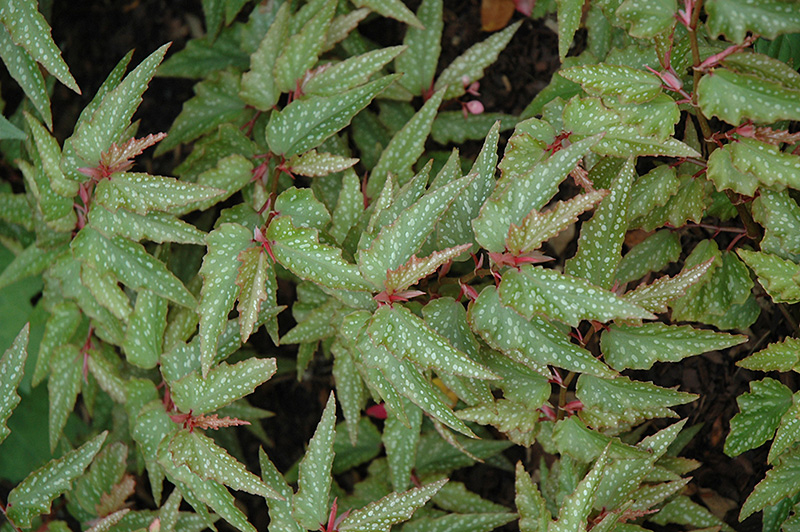Know Before You Go!
Get notified before our plants arrive in stores near you.
Plant Care Library
Height: 24 inches
Spacing: 16 inches
Sunlight:
![]()
![]()
Hardiness Zone: (annual)
Other Names: Cane, Angel Wing, Trout Leaf Begonia
Group/Class: Wax Begonia
Description:
This interesting variety has small elliptic leaves that are medium green and covered with silvery spots; has a bushy habit that branches freely; clusters of bright pink flowers from spring to fall; great for garden beds or baskets
Ornamental Features
Medora Begonia features dainty nodding pink bell-shaped flowers at the ends of the stems from mid spring to mid fall. Its attractive serrated narrow leaves emerge coppery-bronze in spring, turning dark green in color with distinctive silver spots the rest of the year.
Landscape Attributes
Medora Begonia is an herbaceous annual with an upright spreading habit of growth. Its medium texture blends into the garden, but can always be balanced by a couple of finer or coarser plants for an effective composition.
This is a high maintenance plant that will require regular care and upkeep, and usually looks its best without pruning, although it will tolerate pruning. Deer don't particularly care for this plant and will usually leave it alone in favor of tastier treats. Gardeners should be aware of the following characteristic(s) that may warrant special consideration;
- Insects
- Disease
Medora Begonia is recommended for the following landscape applications;
- Mass Planting
- Border Edging
- General Garden Use
- Container Planting
- Hanging Baskets
Planting & Growing
Medora Begonia will grow to be about 24 inches tall at maturity, with a spread of 20 inches. When grown in masses or used as a bedding plant, individual plants should be spaced approximately 16 inches apart. Its foliage tends to remain dense right to the ground, not requiring facer plants in front. Although it's not a true annual, this plant can be expected to behave as an annual in our climate if left outdoors over the winter, usually needing replacement the following year. As such, gardeners should take into consideration that it will perform differently than it would in its native habitat.
This plant does best in partial shade to shade. It requires an evenly moist well-drained soil for optimal growth, but will die in standing water. It is not particular as to soil pH, but grows best in rich soils. It is somewhat tolerant of urban pollution, and will benefit from being planted in a relatively sheltered location. Consider applying a thick mulch around the root zone over the growing season to conserve soil moisture. This particular variety is an interspecific hybrid. It can be propagated by cuttings; however, as a cultivated variety, be aware that it may be subject to certain restrictions or prohibitions on propagation.
Medora Begonia is a fine choice for the garden, but it is also a good selection for planting in outdoor containers and hanging baskets. With its upright habit of growth, it is best suited for use as a 'thriller' in the 'spiller-thriller-filler' container combination; plant it near the center of the pot, surrounded by smaller plants and those that spill over the edges. It is even sizeable enough that it can be grown alone in a suitable container. Note that when growing plants in outdoor containers and baskets, they may require more frequent waterings than they would in the yard or garden.
A NetPS Plant Finder tool

